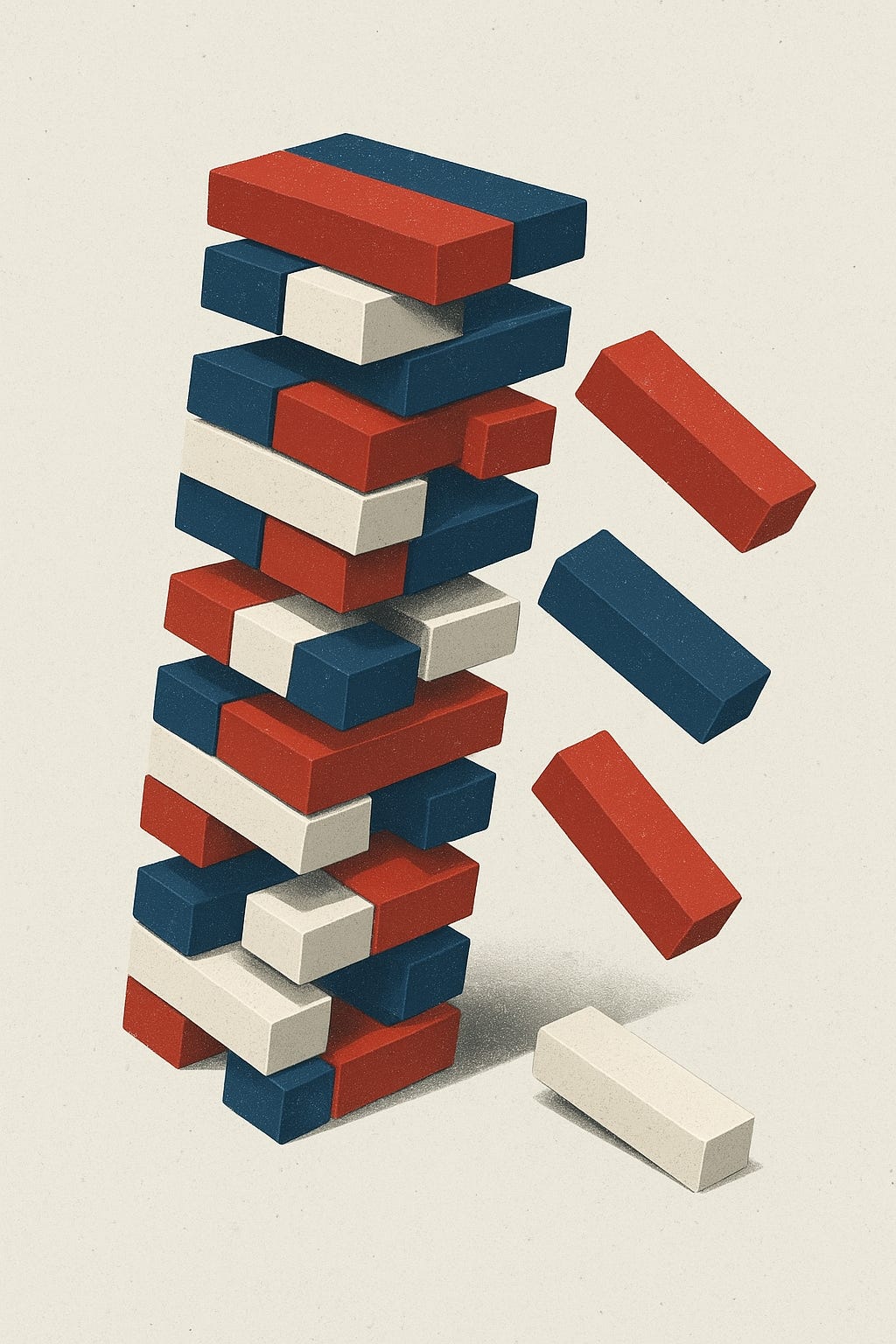Shutdown Before the Fall?
Why this routine "crisis" should serve as a warning.
And so it begins. At 12:01 this morning, the federal government shut down. Again.
It’s the 21st disruption of federal funding since 1976. Much will be written about the cause of this specific crisis, but as a scientist, I’m most interested in the decades of shifting norms leading us to institutional paralysis. How and why have we normalized the inability to compromise and govern?
On the surface, the shutdown is fairly straightforward: Democrats and Republicans couldn’t agree on a continuing resolution (CR) before the September 30 deadline. When Democrats dug in on protecting healthcare funding, Republicans accused them of executing a “radical left” plot to shut down the government. The CR didn’t get the votes it needed, and now 750,000 federal workers face furloughs. Military families will go without pay. Economic data that markets depend on won’t be released.
But that’s an immediate snapshot of this political moment. A look back at the last 50 years provides a more nuanced account of how we got here, why that matters, and what’s at risk.
Is the 2025 shutdown about a policy disagreement itself? Not really. This is the result of decades of institutional erosion.
The congressional staffers I’ve interviewed over the years still remember a different era where the groundwork for big votes happened in informal spaces over intimate dinners and hallway conversations. The dialogue that unfolded during such quiet moments allowed them to explore ideas together across the aisle without making headlines or committing publicly to a position. It was possible for members to be more honest about what their party actually needed instead of grandstanding to a base.
Over time, these deliberations have largely disappeared for a number of reasons I’ll be writing more about in upcoming posts. Compromise is frequently viewed as weakness. And moderation can be a significant political liability.
Without relationship capital to draw on or trusted intermediaries to broker uncomfortable conversations, leaders and staff in both parties have fewer opportunities to negotiate without being accused of betrayal.
Institutional norms don’t simply collapse all at once. With each unprecedented shift, the next becomes easier to justify. We experience a shifting baseline, in which the government becomes less and less able to perform its basic functions.
And now we find ourselves in yet another once unimaginable shutdown. A break-glass-in-case-of-emergency button that now feels routine. It’s happened so often that by now we have established the infrastructure to manage dysfunction rather than prevent it from happening through furlough protocols, contingency plans, and designations of “essential” versus “non-essential” work.
But a warning, friends: Each shutdown makes the next one more likely, because it demonstrates that we will eventually move on. Democracy falters a bit more. The threshold to trigger a shutdown is lowered. They are no longer viewed as catastrophic failures, but tools for political negotiations.
We are watching our institutions wobble under immense pressure. If they fall, what replaces them may not serve us well.



Unbelievable! No provision to avoid Shutdown🤔😒